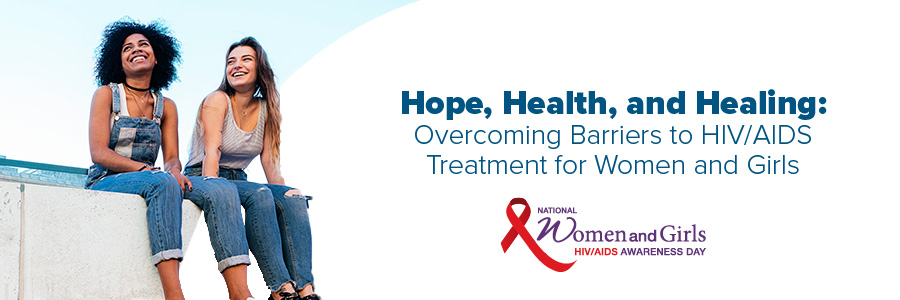
Every year on March 10 — and throughout the month of March — local, state, federal, and national organizations come together to shed light on the impact of HIV and AIDS on women and girls and to show support for those at risk of and living with HIV. This year marks the 20th annual observance of National Women and Girls HIV/AIDS Awareness Day (NWGHAAD).
This year’s theme, “Hope, Health, and Healing: Overcoming Barriers to HIV/AIDS Treatment for Women and Girls,” focuses on addressing the challenges women and girls face in accessing HIV/AIDS treatment and eliminating barriers to health care access for women and girls with HIV/AIDS, such as lack of insurance, geographical location, or stigma. It also supports the goals of the National HIV/AIDS Strategy: preventing new HIV infections, improving health outcomes for people living with HIV, and reducing differences in HIV care and outcomes. As we observe the 20th annual National Women and Girls HIV/AIDS Awareness Day, this theme reminds us of how far we’ve come and the work still ahead. By working together, we can help end HIV and improve the quality of treatment and care for women and girls currently living with HIV.
To learn more, visit the Office on Women’s Health HIV and AIDS web page to access resources and information about HIV and AIDS for women and girls.
What can you do on March 10?
Use the NWGHAAD toolkit and resources to raise awareness about HIV and AIDS in your community.
Show your support for women and girls affected by HIV and AIDS on social media and use the hashtag #NWGHAAD.
Access information on HIV and Women, including risk factors for HIV and issues that can affect HIV treatment in women.


